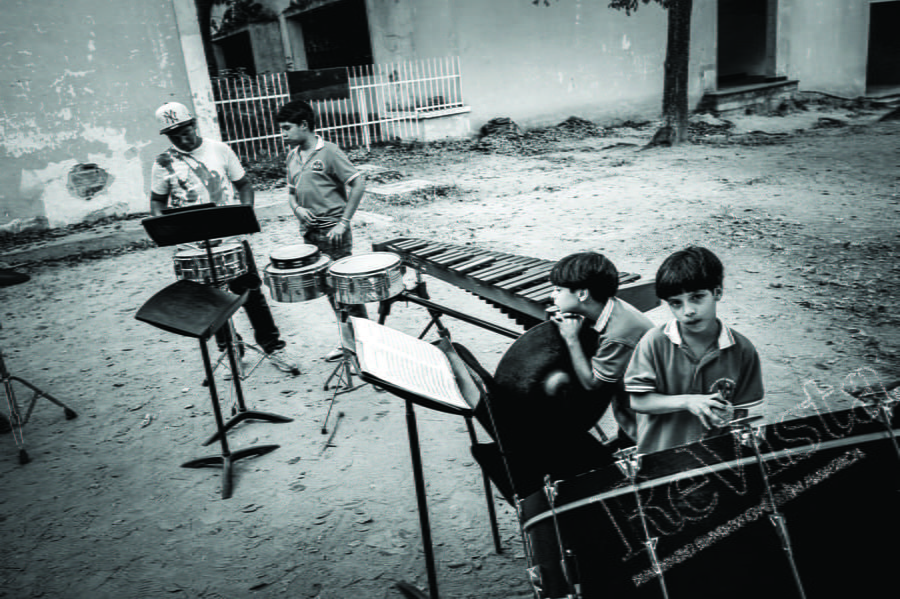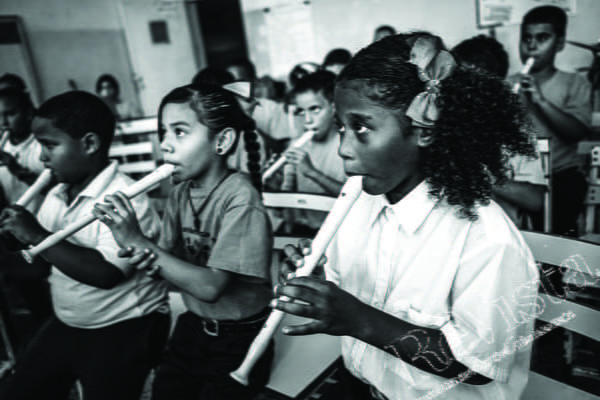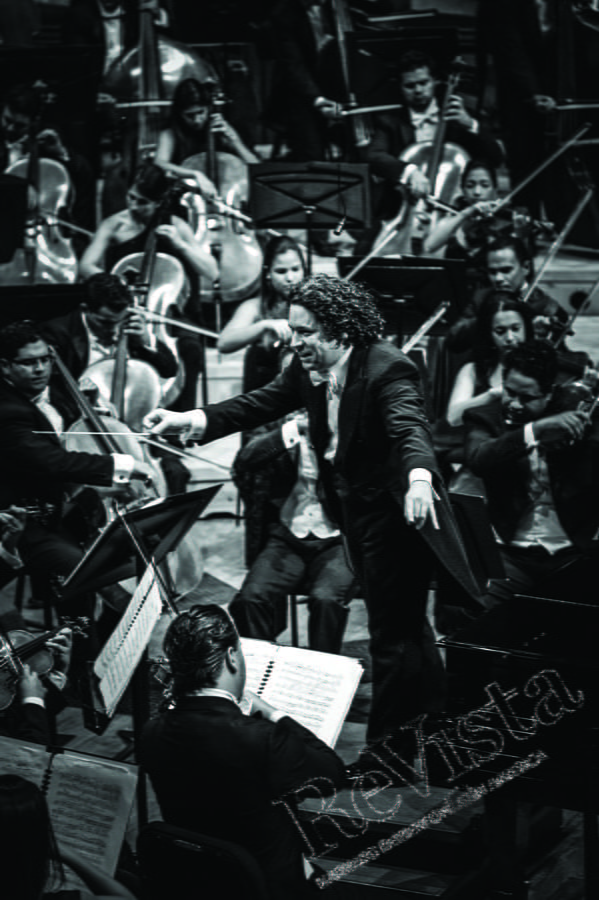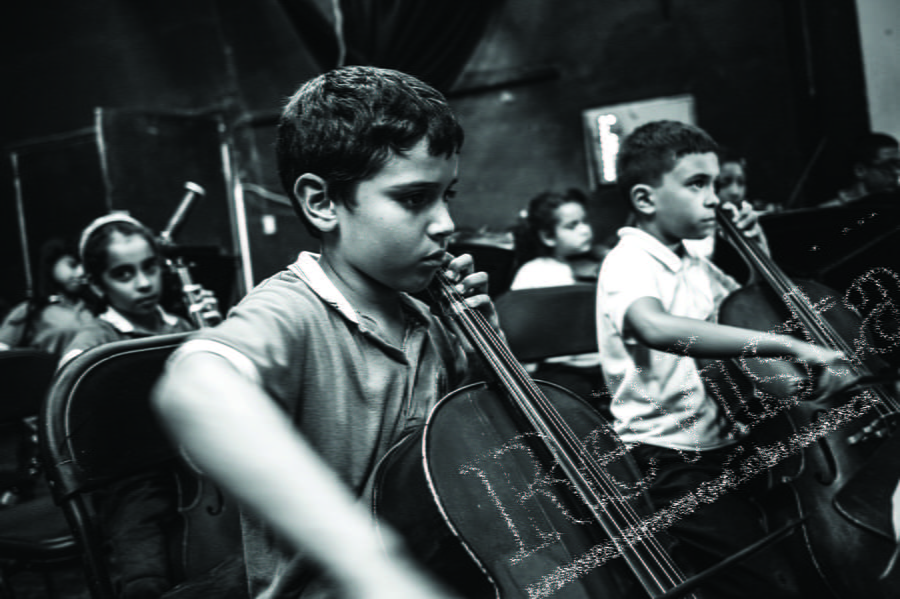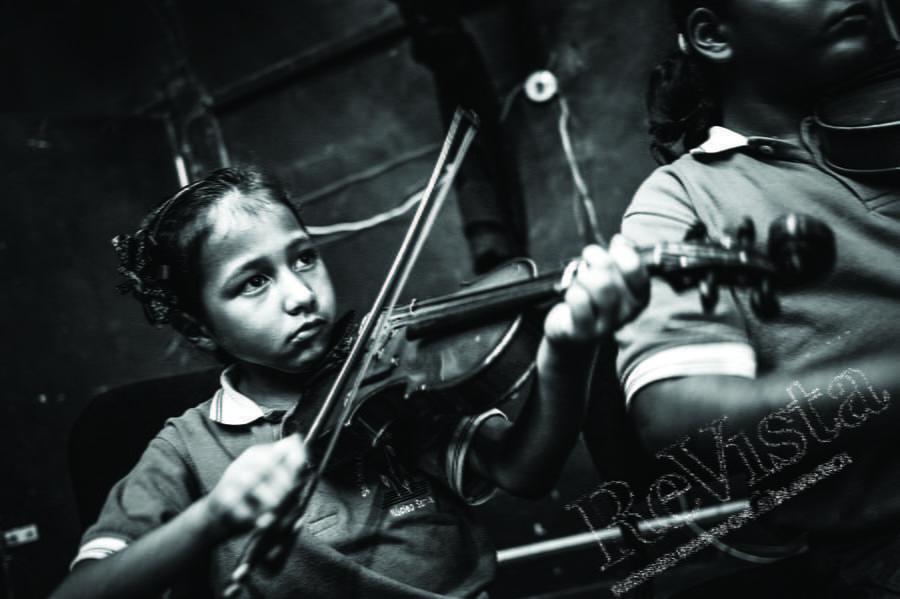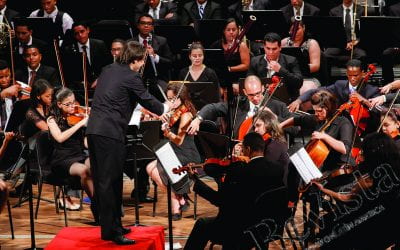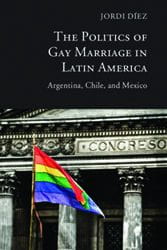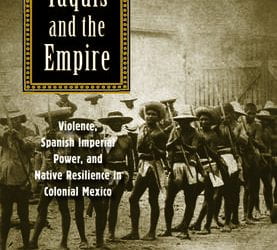Musical Slums
Playing for Your Life in Venezuela’s El Sistema
- Children learn to play classical music at the Sarria nucleo, of the El Sistema music program in a dangerous slum in Caracas, Venezuela.
- Children learn to play classical music during their first week of recorder class at the 23 de Enero nucleo, of the El Sistema music program. 23 de Enero slum is the stronghold of late socialist President, Hugo Chavez. It is where his armed, militant supporters live, and is indisputedly the heart of the Revolution in Venezuela.
The small bus was trudging up the almost vertical hill, swerving sharply to the left to let off the passengers. The street where I got off was littered with electric cords and big piles of uncollected trash emitting an unbearable stench and inviting ominous vultures. I went up an alley of stairs that wound its way between the bare-bricked houses, where some curious elderly women peeped out of the windows. After a couple of hundred steps, feeling the sweat, dust, and strong sun on my arms, I reached the top of the staircase. Below me stretched a vast expanse of houses densely scattered on hills and in the distance, hidden by the afternoon fog, the center of Caracas. But in the background, I heard children’s laughter, the sound of running feet, and the disorderly tuning of a symphonic orchestra. Drawn out of my reverie, I walked into the music school where for a year I taught flute to children living in a Venezuelan slum.
There are 423 such music schools all over Venezuela. They are part of El Sistema, a state-funded classical music program that provides cost-free music education and instruments to half a million young people between the ages of 2 and 18 across the country. Founded in 1975 by economist and musician José Antonio Abreu, El Sistema has weathered the volatile political climate of seven changes in government and has been adopted in 35 countries around the world. What started out as a dozen musicians playing together in a garage is today a nation-wide after-school program comprising more than a thousand children’s and youth orchestras and dozens of professional orchestras and ensembles that tour the world. El Sistema aims to lessen socioeconomic exclusion and everyday violence through music, and 81 percent of the program’s participants are from the poorest and medium-low social strata (Inter-American Development Bank).
El Sistema’s activities take place daily between 2 and 6 p.m., the first two hours dedicated to instrumental classes and the last two to orchestra rehearsals. Children, some as young as two, begin by singing in choirs, playing the recorder or cardboard instruments in the so-called “paper orchestras.” After a couple of years, they are encouraged to listen to, touch, feel, and play with the real instruments, choosing the one they like best and having the freedom to switch instruments later on. As soon as a child is able to play an instrument, he or she is expected to teach younger children. As a result, El Sistema’s pedagogy is spontaneous and playful, not wedded to centuries of top-down and formal European traditions in learning. As the weather is warm all year round, classes often take place in improvised spaces: in an open patio, under an awning, in the town plaza or under a tree.
- Gustavo Dudamel conducts a performance of the Simon Bolivar Orchestra in Caracas, Venezuela. Dudamel was trained by the El Sistema program, and is widely regarded as it’s most accomplished alumni. He is now the conductor of the Los Angeles Philharmonic Orchestra.
- Students learn to play classical music at the El Sistema nucleo in Maracay, Venezuela.
When I first found out about El Sistema, I was a Ph.D. student in anthropology at Brown University. The idea that music was practiced on such a wide scale in Venezuela captured my imagination. Born in Bulgaria, on the eve of the revolutions that brought down the Berlin Wall and changed a continent, and having just written an undergraduate honors thesis on the place of poetry in the Chilean transition to democracy, I was committed to the idea that artists could be agents of political and social change. I was a life-long pianist and flutist, and the daily practice of music had shaped my own life. My fascination with El Sistema sharpened my resolve to go to a country which has some of the highest homicide rates in the world and was then on the brink of political and economic turmoil. El Sistema eventually became the subject of sixteen months of ethnographic research and my dissertation.
I arrived in Venezuela without knowing anybody in 2011. The first thing I did was to visit the headquarters of El Sistema, a seven-story building in the center of Caracas where the professional orchestras are housed. It was teeming with activity all day long; individual and orchestra rehearsals, music classes, and in the evenings, invariably, at least one concert. Children of all ages energetically played Mahler, Beethoven, Tchaikovsky, and Stravinsky, and identified with the personal histories of the composers. Their passion for classical music was fueled by the words, visits and inspiration of their own Gustavo Dudamel, a program graduate who is now the conductor of the Los Angeles Philharmonic. Famed foreign conductors, such as Claudio Abbado and Sir Simon Rattle, as well as professors, were other common visitors in El Sistema.
Eager to find out where many of the musicians hailed from, during my next two summer research trips to Venezuela I set out to visit schools outside of Caracas. My travels took me to the Lara region famous for its Venezuelan popular music, where popular ensembles coexisted with the Western classical music conservatories. There, I asked Lucia, a little girl who was a violinist in the local children’s orchestra, what she liked about music. She hugged herself tightly and rocked back and forth, her eyes shyly looking down, a cunning smile on her face. “With music I create my own stories,” she said, telling me of a beautiful princess forced to marry a man she did not love. She told me that her instrument helped her communicate with others: “I am usually shy but when I am holding my violin I feel brave enough to talk to people.” From there, I traveled to the mountainous region of Mérida and visited a school perched at 5000 feet, where the wind instrument players felt dizzy as they drew a breath in the rarefied air. There, Alicia would walk out of the music school with her cello on her back, and sing all the way home. From Mérida, I went to the deserts of Coro, where the wood of the violins cracked in the heat. I met Carlos, a youth who worked over the weekends in his uncle’s liquor store to save up enough money to buy his own trumpet, which he caringly polished and lovingly played. And then I went to Canaima, near the highest waterfall in the world, where indigenous children took music classes under palm trees and later swam in the nearby lake. And where, in the evenings, a mother played the viola in the local orchestra, while her baby daughter played at her feet.
For my year of fieldwork, I was, however, based in Caracas. I taught flute in the largest slum in Venezuela, which has the highest homicide rate in the country. In between gang crossfire, the El Sistema bus came to pick up children and take them up the steep streets to “la orquesta” (the orchestra), as the musical activities were popularly called. As my Ivy League students had been replaced by seven-year-old pranksters, I struggled to make them concentrate on the music class and gain their respect. “You do it then,” Juan, one of my flute students, challenged me on my first class after I corrected his technique. I found teaching to be enormously rewarding because it enabled me to engage with people in an activity that could not be expressed in words. “Let’s just play and you’ll see for yourself,” was what Laura, a bassoon player, replied to my question what music meant to her. Teaching also made me a valued member of the community, and I met my students’ mothers and took part in their everyday lives. They were faithfully dedicated to their children’s everyday practice of music because it kept children away from the violent gangs that permeated the slum. Furthermore, the mothers believed that participation in El Sistema gave their children opportunities they themselves had never had.
- Children learn to play classical music at the Sarria nucleo, of the El Sistema music program in a dangerous slum in Caracas, Venezuela.
- Children learn to play classical music at the Sarria nucleo, of the El Sistema music program in a dangerous slum in Caracas, Venezuela.
I experienced the thrill of these opportunities when I was invited to join one of the professional orchestras on a tour to Japan and South Korea. Many musicians were leaving the country for the first time, replacing their beds in the slums with rooms in five-star hotels. They experienced the excitement and intimidation of getting to know new countries. Performing for enthusiastic audiences in Hiroshima, Tokyo and Seoul, they cried with emotion or worried over concert mishaps. Some took part in the activities for the children orphaned in the nuclear disaster in Fukushima, where a school inspired by El Sistema was created. They played in binational orchestras, where a Venezuelan and a Korean musician shared a stand and a score but not a common language.
Today, as Venezuela faces fast-growing inflation, political instability and scarcity of basic goods, El Sistema’s thousands of musicians continue their daily musical activities.
Winter 2016, Volume XV, Number 2
Yana Stainova, a pianist and flutist, is a Ph.D. Candidate in Sociocultural Anthropology at Brown University. She earned her B.A. in International Relations and Spanish from Mount Holyoke College.
Related Articles
When Music Changes Lives
English + Español
n 2004, I got a surprising phone call from Santo Domingo on one cold winter night. I was then studying musical composition in Strasbourg, France, a great opportunity for a young Dominican…
The Politics of Gay Marriage in Latin America
Despite its recent successes, the gay rights movement in Latin America is generally ignored in discussions of contemporary Latin American politics. Even students of Latin American social…
The Yaquis and the Empire
Winner of the 2015 Latin American Studies Association Social Science Book Award and runner-up for the 2015 David J. Weber-Clements Prize of the Western History Association, The Yaquis…

